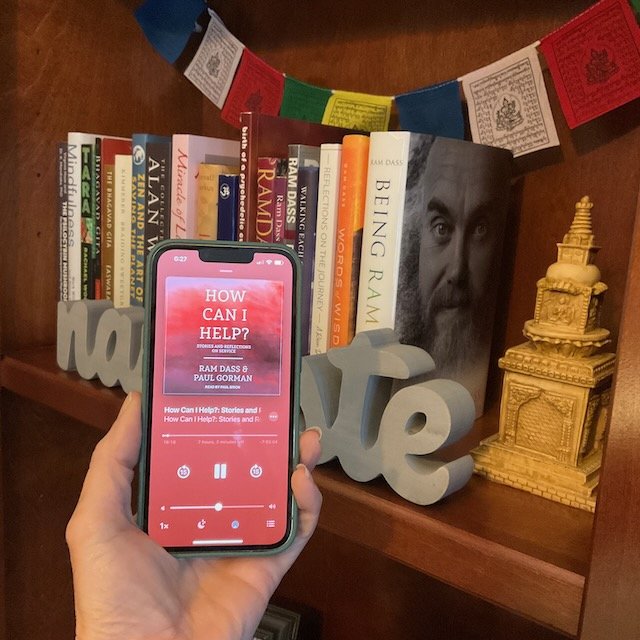How Can I Help? Stories and Reflection on Service (by Ram Dass)
As a student of Ram Dass’ teachings, and having a career in a helping profession, I was especially eager to read this book. Ram Dass established the Love, Serve, Remember Foundation; therefore, his teachings consistently encourage being of service to others. I was eager to read his and Paul Gorman’s thoughts on the concept of helping others with the depth a book can provide.
The book, How Can I Help? Stories and Reflections on Service, intelligently weaves the authors’ wisdom with stories from helpers. It is immediately established that we are all helpers and engage in helping behaviors daily. There are powerful stories from a housewife, police officer, nurse, volunteers, etc. The authors address so many dynamics of the helping role; we concern ourselves with being a good helper, we worry about the emotional toll to ourselves by taking on someone else’s suffering, wonder if we are being helpful, etc.
A meaningful lesson for me was to be thoughtful about the values and expectations I place on others while being a helper. The authors acknowledge that helpers have good intentions; however, sometimes those good intentions are not necessarily good for the person being helped. It’s best for me to be mindful about the best interest of the person I am helping and not what I value. Sometimes, just being with the person during their time of suffering is enough.
I was pleased that this book offers wisdom that can be utilized by anyone, at anytime, and in any place. It is inclusive of all helping opportunities. Initially, I thought this book may be geared towards those actively in a helping profession. I am so glad my impression was wrong. I will likely read this book again, as there are so many insights to grasp that more than one read would be helpful.
As a participant in the Amazon Associates Program, I earn from qualifying purchases linked back to Amazon. Every penny earned allows me to blog about books and keeps this site running.


